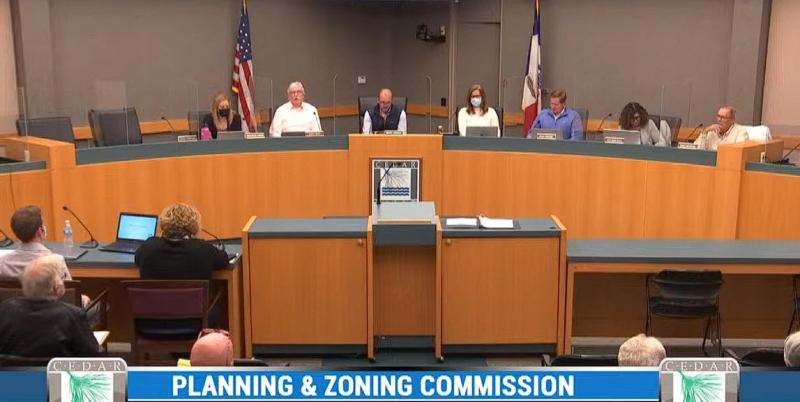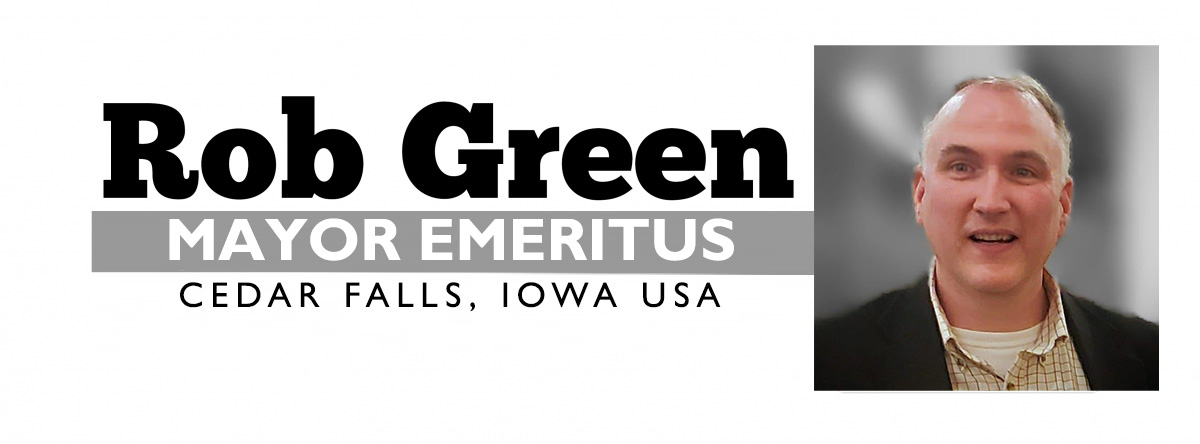
Neighbors, one of my key roles as Mayor is to engage with the City Council on the direction of the city, and to facilitate their deliberations during meetings in order to obtain the wisest possible decision. I greatly respect the Council's policymaking role, but also reserve the right to veto council resolutions and ordinances which I believe are damaging to the city's long-term vitality. The council is currently working through some proposed changes to how the council would engage on planning & zoning matters. I believe that these proposed changes are so ill-advised that I would exercise my veto power if they passed the council. I've sent the below communication to the City Council and to the P&Z Commissioners, and am posting it here for public consideration as well. Veto power ought to be used very sparingly, and want to make it clear to all why I would veto this. I also want to be transparent in these considerations, and help you, as a resident and voter, to critically think about these important civic matters for yourself. You have the right to come to your own conclusions, and I encourage you to think through the process and decide where you agree or disagree.
Background. The Cedar Falls City Council will soon be considering a resolution to change the balance of power for decisions related to planning and zoning. These proposed changes are to (1) re-insert the Planning & Zoning Commission as a recommending body and the Council as the final approving authority for certain construction in designated districts, namely Downtown; and (2) to lower the Council threshold to override a Planning & Zoning recommendation on zoning ordinance changes, down from two-thirds majority (5 of 7 members) to a simple majority (4 of 7 members). Below are my eight major concerns:
- The Proper role of Council. One of the development community’s primary concerns about the Cedar Falls development process has been the arbitrary nature of approvals, and the frequent insertion of new ‘requirements’ by staff, commissioners, or council, beyond what exists in the code. I believe the best use of commissioners’ and councilors’ time is to address any issues in the Zoning Ordinance itself -- not to referee individual projects. By this, I don’t suggest that the code requirements should be loosened -- far from it. Strict and detailed requirements are perfectly fine; the developer community simply needs to know what the rules are, and to believe that these rules will be stable and fairly applied across the board. Stability assures confidence in making the significant investment for site acquisition and planning, to meet the needs of the market.
- Arbitrary Decisionmaking. Developers should be allowed to build on a property (“by-right development”) so long as the project meets code, however strict that code is. To that end, the new downtown zoning ordinance is designed to limit the risk of arbitrary City Council decisions and needless political intervention. The council’s best and most useful role is to carefully and thoughtfully create and continuously improve the city’s zoning ordinances, and to hold the Mayor and City Administrator accountable for ensuring that city staff carries out the zoning ordinance fairly and accurately. Intervention by the City Council on individual site plans provides no real benefit to the city. The likely outcome for council approval of site plans would be the turning down of projects that meet the requirements of the zoning ordinance; I cannot foresee an instance where a project that does not meet code requirements would be approved by Council anyway. The very real risk of a council voting down a project simply because “it doesn’t like it” is unfair to individual developers and is a significant impediment to future development in Cedar Falls. A level playing field requires clear guidance, not the council picking individual winners and losers.
- The Role of City Staff. City staff are responsible for verifying that proposed site plans meet the requirements of the city code (including nuisance provisions and aesthetics requirements). If a project “checks all the boxes” on the city’s development checklist, then the project should be ought to be approved. In response to the argument of a city council needing the ability to override staff, I would respond that one of the Mayor’s primary responsibilities is to ensure that the city’s laws and ordinances are faithfully executed. If staff are ever not carrying out their responsibilities, or are making decisions beyond the requirements of city code, then the mayor steps in and addresses those issues with the City Administrator. Were the council to re-take the site approval responsibility, this change would not correct issues within the process, but instead would enable them by creating a destructive “work-around” to the city’s council-approved ordinances.
- The Wisdom of a Supermajority’s Stability. The code currently requires a two-thirds majority of council members to overrule zoning change recommendations of the Planning & Zoning Commission. These nine members are a diverse group of architects, developers, civic leaders, and residents with significant experience and expertise to weigh in on planning and zoning matters. The supermajority requirement for an override of P&Z recommendations helps to ensure that these weighty, long-term decisions are not made for short-term political ends, but instead enjoy wide support from the community.
- Questionable Timing. This request for these changes appears to be a reach for short-term political gain by a minority of council members who are opposed to particular aspects of the zoning ordinance; the move does not appear to be a general desire for continuous improvement of government. This leads me to ask, if these councilors were actually in favor of the trajectory of our zoning ordinances, would they still support changing ‘super majority’ to ‘simple majority”?
- Responsibilities of Boards and Commissions. Recently a councilor stated at a public meeting that the supermajority requirement gives the planning and zoning commission authority beyond that of other boards and commissions, but this is simply not true. Several other appointed bodies (particularly the Board of Adjustment, Board of Rental Housing Appeals, Library Board of Trustees, and Utilities Board) enjoy near-total autonomy, free from arbitrary political interference to carry out their work. The Planning and Zoning Commission is the city’s primary recommending body for planning & zoning rules and regulations, and mandatory commission under state law (Chapter 414.6). These members are focused on city development issues, and their recommendations should continue to bear strong weight for the future developmental policies of the city.
- Accountability of Commissioners. A misconception being advanced in council deliberation is that the appointed officials are unaccountable -- that decisions need to be made by the elected officials as direct representatives of the public. I believe this is a spurious argument because all appointments to boards and commissions are made directly by the Mayor (an elected official) with the consent of the council (elected officials). I make all appointments only after a thorough vetting process, and I include the applications and questionnaires for each nominee in the council packet for your review.
- Appointment Process Accountability. I greatly appreciate that the composition of the city’s boards and commissions are a direct reflection on me as the mayor, and I seek a diversity of opinions and perspectives for wise decision-making. To that end, at the start of my term in 2020, I created clear guidance for a fair and balanced policy (CFD 1201: Mayor’s Appointment Process for Boards and Commissions). Appointees can be removed by the mayor and a council majority for cause, should they violate codes of conduct or ethics. To be clear, simply not liking how a commissioner votes is not grounds for removal. These positions are by no means lifetime appointments; a new mayor may simply decide not to reappoint a member when the term expires, to help generally move the city in a different direction. I also have a ‘20 year sunset’, where after two decades of service, a member will be retired from that commission to encourage new ideas and perspectives. In the end, if the public is concerned about the appointees, the public can elect a different mayor to make appointments and different council members to approve them. Given the continuous ability for the council to weigh in on the makeup of the Planning and Zoning Commission and affect its membership (if needed), it is clear to me that the argument “appointed officials are unaccountable to the public” is without any real merit.
Closing. The proposed zoning process changes -- eliminating the supermajority and reinstating P&Z/Council review of individual site plans -- would be harmful to Cedar Falls’s ability to attract quality development projects, would destabilize the long-established planning and zoning balance of powers in our city, and counterproductive for addressing both short-term and long-term challenges in our development process. For these reasons, I will veto any resolution from the City Council which would direct these changes, just as Mayor Crews did back in the early 2000’s. I earnestly hope the City Council will avoid putting me in that position, and I thank you for your consideration of my concerns.
So, that's my reasoning. Agree? Disagree? No matter where you stand, thank you very much for doing the work to be an informed and engaged resident. Feel free to reach out to the council and me at citycouncil@cedarfalls.com if you have a strong opinion either way! Civics is fascinating!
